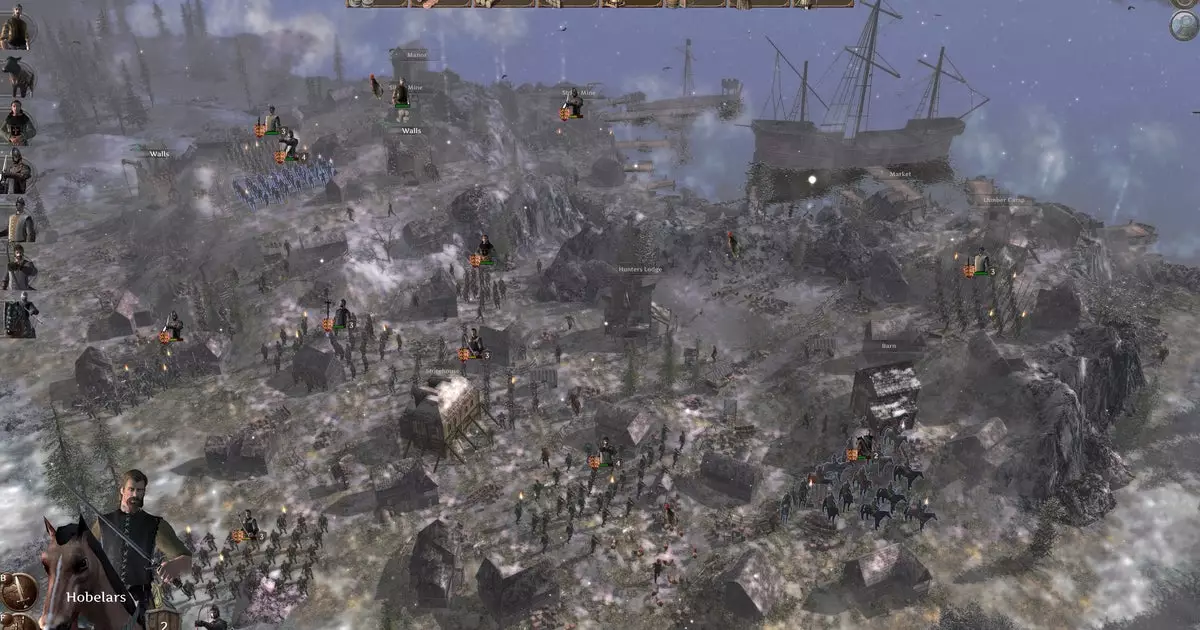The Crusades, a series of fervent military campaigns initiated in the medieval era, were marked by their religious zeal and brutal ambition for control over the Holy Land. This conflict, fueled by the dichotomy of faith and power, is a rich tapestry of stories that influences contemporary discourse—often in alarming ways. The term “deus vult,” which translates to “God wills it,” signifies not just a rallying cry for warriors during the 11th to 13th centuries but has unfortunately been appropriated in modern times by extremist factions. This offers a stark reminder that history is frequently manipulated to serve contemporary ideological battles. The Crusades stand as a case study not just in the realm of historical examination but also in the way we utilize that history to shape present cultural narratives.
Gaming as a Portal to the Past
In recent years, the intersection of gaming and history has seen a burgeoning interest, inviting players to engage with complex historical events in ways that textbooks cannot. A prime example is “Knights Of The Crusades,” a grand strategy game that immerses players in the historical context of the Crusades, allowing them to assume the roles of both Christian and Muslim factions. This game aspires to offer a vivid depiction of the period, encouraging players to navigate the intricate landscapes of shifting alliances, battles, and moral quandaries. By doing so, it promises not only entertainment but also a unique educational perspective on an event often overshadowed by its moral depravity.
The game’s design, likened to “Age of Empires” on a grander scale, applies itself to an ambitious mechanic that contests with the highs and lows of empire-building. Players are invited to experience the threads of history, from the first fervent attempt to seize Jerusalem to the expansive reach of influence across North Africa and beyond. It raises an enticing question—can video games serve as a method for examining and representing a notorious period in history without succumbing to romanticized narratives? The ambition here is formidable, and it challenges the player to recognize the moral complexities of their decisions.
The Ethical Quandary of War Gaming
However, as with any exploration into contentious history, the depiction of conflict necessitates a careful balance between engagement and sensitivity. The Steam page for “Knights Of The Crusades” explicitly mentions raiding villages and unreserved violence against innocents, evoking the grim realities of war. While this approach could provide a sobering dose of authenticity, one must remain vigilant to avoid glorifying violence and zealotry. The moral implications of commanding armies to pillage and conquer require players to grapple with historical realities, rather than simply viewing them as a gameplay mechanic.
Moreover, the concern regarding how such depictions may fan the flames of nationalist or extremist ideologies cannot be overlooked. The potential for a narrative to be misinterpreted or misused is exacerbated when dealing with sensitive topics like religious wars. Thus, anticipating whether “Knights Of The Crusades” will serve as a thought-provoking depiction of moral ambiguity or merely a platform for glorification is a valid concern. The former could potentially foster greater historical understanding, while the latter risks perpetuating harmful myths and glorifying a past riddled with conflict.
Recommendations for Historical Gaming
Diving into this realm prompts the question of where to start. While “Knights Of The Crusades” offers a compelling springboard, other titles like “Crusader Kings” have long been the vanguard of mixing history with strategy. However, the intricate mechanics and broad narrative arcs might be intimidating for some players. The weight of decision-making in these games could drive less experienced gamers away, and as such, a more measured approach to historical gaming might be warranted.
Current and aspiring players should consider titles that blend user-friendly mechanics with rich historical contexts. Games that emphasize storytelling alongside strategic gameplay may resonate more with those hesitant to engage in the complexities of their role in these events. Additionally, interactive documentaries or narrative games inspired by the Crusades’ themes—albeit without direct combat—could fully engage audiences in the moral landscapes of the era. The power of gaming lies not just in the battle mechanics but in the conversations they prompt—encouraging players to reflect upon the legacies of violence, faith, and power that echo through time.
As we traverse the digital landscapes of our past, the responsibility lies not only with developers but with players to navigate this terrain with thoughtfulness, ensuring that historical awareness is at the heart of gameplay.


Leave a Reply